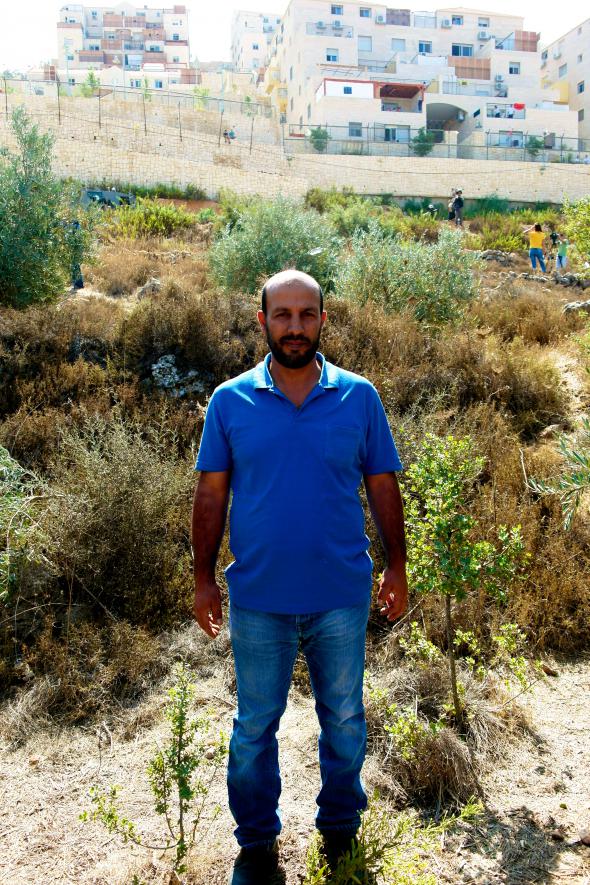Under the surveillance of dozens of Israeli soldiers the opening event of the Olive Harvest program was in Wadi Fukin village. Activists from Palestine, Norway, Sweden, Spain, USA and Germany gathered in a field threatened by the nearby Israeli settlement Beitar Illit, to pick olives. A good amount of cameras covered the harvesting, among them Palestinian press. Wadi Fukin village is surrounded by three Israeli settlements Tsur Hadassah, Beitar Illit and Hadar Beitar. Beitar Illit is one of the biggest settlements in the West Bank with around 40000 inhabitants, most of them ultra orthodox Jews.
The presence of press, international and Palestinian activists has allowed it for the farmers that normally avoid accessing their own land because of the settler threat to gather their harvest. With the help of many hands olives were picked without interruptions, but under the scrutiny of both soldiers and settlers families standing on their balconies, some of them yelling and others in silence.
Resisting surrounding settlements
Ibrahim Al Manasrah, a local farmer and activist who is among the founders of the Stop the Wall campaign, tells us that Wadi Fukin has been resisting the settlers’ intent to drive the farmers from cultivating their land. For generations the farmers have been growing vegetables in the fertile land of Wadi Fukin. For the farmers the access to water is important. Therefore the Israeli settlers strategy to seize the lands is to destroy the main water sources of the village.
In order to meet the threat by the surrounding settlements the farmers have implemented a range of measures in order to give access and water to the land close to Beitar Illitt. A four km long road from the village to the cultivated land has been constructed to give the farmers easier access to their land. Al Manasrah says that the road was built on Fridays and Saturdays with numerous interruptions from Israeli soldiers. Among the infrastructure projects was as well the construction of a kindergarten but the Israeli military ordered it closed. Despite the orders of the occupation, the kindergarten is still open. In order to meet the water shortage pools have been built for all the houses in the village.
Insecure Future
Al Manasrah is concerned about the future. 1200 dunams (1000 m²) of the 4000 that Israel announced this August as slated for confiscation – the biggest confiscation of land in 30 years – belong to Wadi Fukin. How can they prevent the settlers from seizing their land also in the future? Today Wadi Fukin has about 1300 inhabitants. Because they are prohibited from building outside of the 500 acres of the village and the surrounding 2500 farming land, future generations have no possibility to get their own livelihood and are often forced to leave the village to survive.

